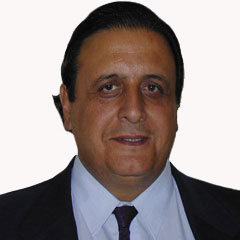Raúl Baglini facts for kids
Quick facts for kids
Raúl Baglini
|
|
|---|---|

Raúl Baglini in 1993.
|
|
| National Senator | |
| In office 10 December 2001 – 10 December 2003 |
|
| Constituency | Mendoza |
| National Deputy | |
| In office 10 December 1983 – 10 December 1993 |
|
| Constituency | Mendoza |
| Personal details | |
| Born |
Raúl Eduardo Baglini
23 December 1949 |
| Died | 3 January 2021 (aged 71) |
| Nationality | Argentine |
| Political party | Radical Civic Union |
| Occupation | Politician |
Raúl Eduardo Baglini (born 23 December 1949 – died 3 January 2021) was an Argentine politician and lawyer. He served in both parts of Argentina's main law-making body, the National Congress of Argentina. He represented the Radical Civic Union political party.
Contents
Life and Political Career
Early Life and Education
Raúl Baglini studied law at the National University of Córdoba. While there, he joined the Radical Civic Union political party through a student group called Franja Morada. He later became a professor at the University and worked with the Faculty of Economical Sciences at the National University of Cuyo.
Serving as a National Deputy
In 1983, Raúl Baglini was chosen to be a National Deputy. This means he was a representative in one of the two main groups that make laws for Argentina. His party won the election against another big political group called Peronism. He served as a Deputy until 1985 and was re-elected two more times, in 1989 and 1993.
During his time as a Deputy, he was a strong supporter of Raúl Alfonsín when he was President. He was also a firm opponent of the next President, Carlos Menem, who was from the Peronist party. Baglini was a leader for his party in the Chamber of Deputies. He also led the Budget and Treasury Commission, which handles money matters for the government. He was also the Vice President of the Chamber.
Running for Governor
Raúl Baglini also ran to become the governor of Mendoza, which is a state in Argentina. However, he lost the election to José Octavio Bordón, who was from the Peronist party. They had many debates, and both thought they would win.
Return to Law and Senate Term
After his time in the Chamber of Deputies, Baglini went back to being a lawyer. He led his own law firm. In 2001, he was elected as a National Senator for his home province. As a Senator, he was involved in important financial decisions, like the "Megacanje" (Global Bond Exchange), which helped manage Argentina's national debt. He also supported President Fernando de la Rúa's plans.
Later Political Work and Passing
After serving in the Senate, Raúl Baglini became an advisor for his party, the Radical Civic Union, focusing on money matters. Around 2008, he worked with Julio Cobos, who was the Vice President, to help organize the party in Mendoza. He stopped most of his political work in 2010 after a health issue required him to stay in the hospital for a long time. Raúl Baglini passed away on 3 January 2021, at the age of 71.
Baglini's Theorem Explained
What is the Theorem?
Before the 1989 elections, Raúl Baglini took part in a political debate. During this debate, he shared an idea that became very famous. He said that politicians tend to be more careful and realistic with their ideas and promises when they are closer to actually being in power. This means that when a politician is far from winning an election, they might make big, bold promises. But if they are likely to win and take office, they become more practical and cautious about what they say they will do.
How it Became Popular
A journalist named Horacio Verbitsky heard this idea and called it Baglini's Theorem. This term quickly became popular among people who study or work in politics. It is still used today to describe how politicians' views can change depending on how close they are to holding power.
See also
 In Spanish: Raúl Baglini para niños
In Spanish: Raúl Baglini para niños

